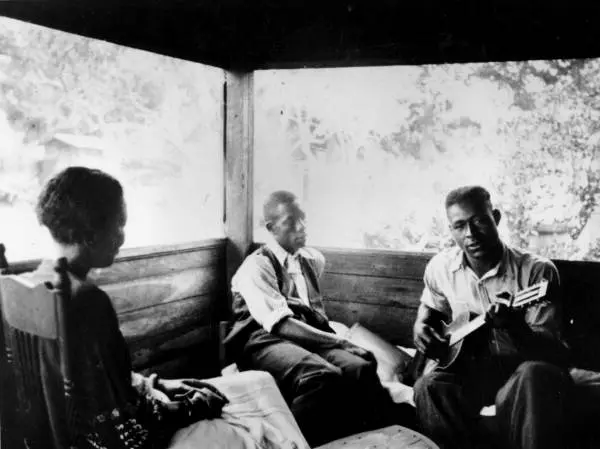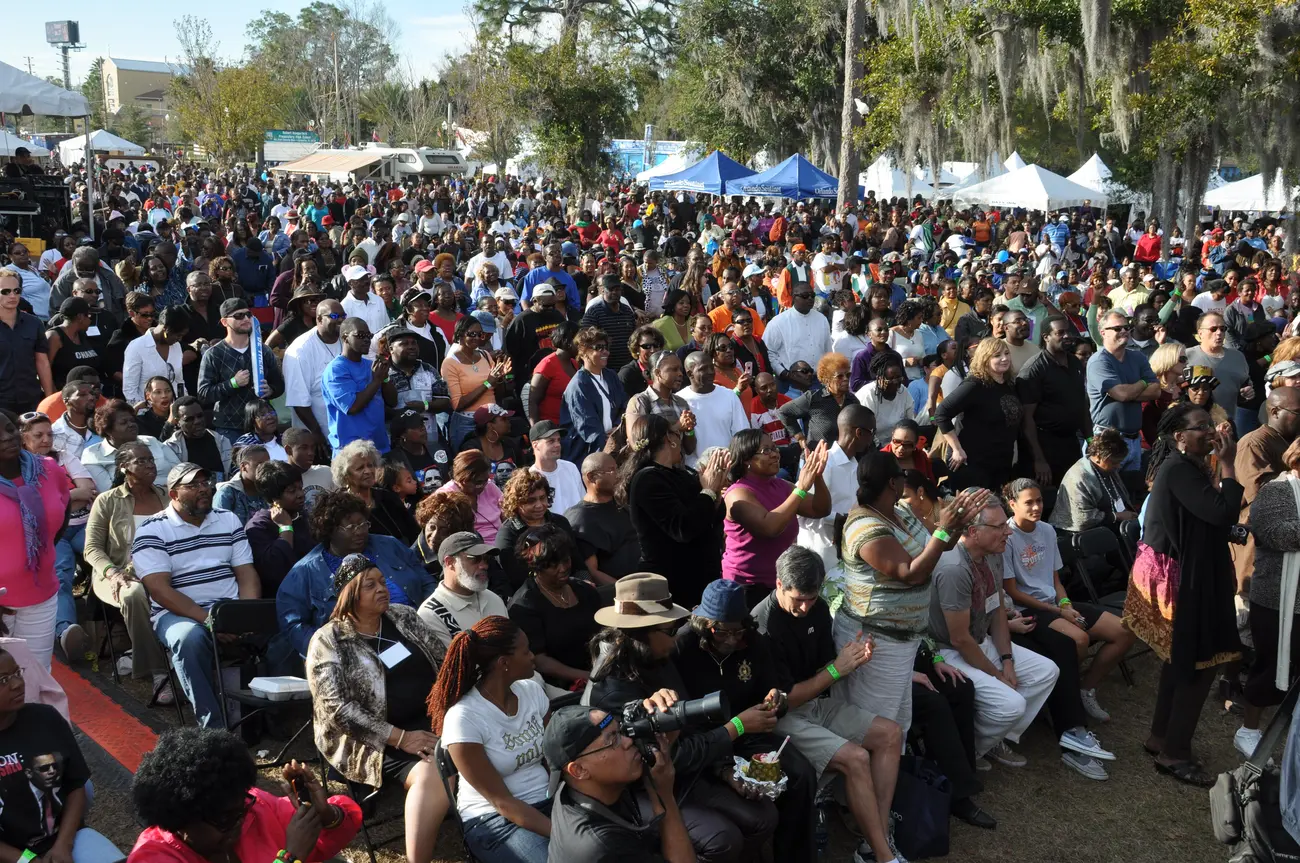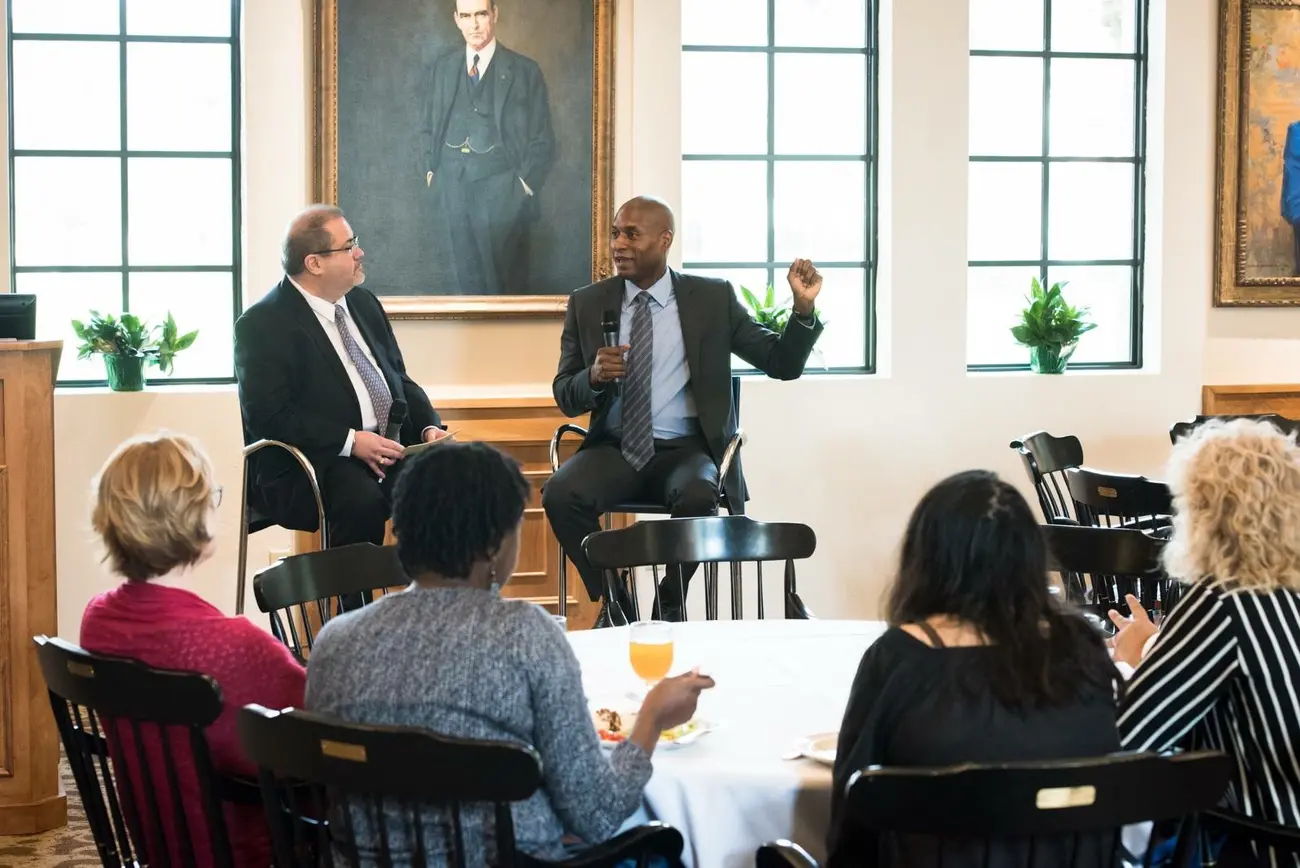The 28th annual Zora Neale Hurston Festival of the Arts and Humanities was held January 21-29.
The event was presented by the Association to Preserve the Eatonville Community, and included a series of presentations called “Communities Conference: Civic Conversations Concerning 21st Century American Life in Communities of Color” in venues at Rollins College and Eatonville.
Elizabeth Van Dyke performed in “Zora Neale Hurston: A Theatrical Biography” at the Dr. Phillips Center for the Performing Arts in Orlando, and the ZORA! Golf Tournament was held at Metro West Golf Course. There was a tour of yards and gardens in Historic Eatonville.
The three day Outdoor Festival portion of the event featured vendors selling original arts and crafts, food vendors with fried fish and other festival food, and musical performances throughout each day including headliners The Whispers, and Jonathan Butler & Friends.
Eatonville is the oldest incorporated African American municipality in the United States. Growing up in the all black town had a profound effect on Zora Neale Hurston’s attitudes about race that can be seen in her work.
“We say that Zora Neale Hurston and the Eatonville community are two sides of the same hand,” says N.Y. Nathiri, executive director of the Association to Preserve the Eatonville Community. “For Zora Neale Hurston, Eatonville represents the quintessential cultural impact that people of African ancestry, particularly rural southern people in this country, contribute to the culture of the United States.”
In the 1930s and ‘40s, writer, folklorist, and anthropologist Zora Neale Hurston was a celebrated figure of the Harlem Renaissance. Hurston is best remembered for her 1937 novel “Their Eyes Were Watching God,” the story of Eatonville resident Janie Crawford and her attempts at self-realization.
“’Their Eyes Were Watching God’ is history, it’s fiction, it’s pathos, it’s tragedy, all rolled up together in one incredible literary gem,” says Florence Turcotte, literary manuscripts archivist at the University of Florida’s P.K. Yonge Library of Florida History. “Making history come alive is sort of what I like to do, and that’s what excites me about Zora, is that she fictionalized real life and said a lot about the human condition, and a lot about life in Florida during her stay here.”
Hurston’s other novels include “Jonah’s Gourd Vine,” the story of an unfaithful man with an understanding wife; “Moses: Man of the Mountain,” a retelling of the biblical story of Moses; and “Seraph on the Suwanee,” Hurston’s only book that features white people as main characters. Hurston also wrote dozens of short stories, essays, and dramatic works.
Hurston’s literary career began even before she graduated from Barnard College in 1927. In 1925, her short essay “Spunk” was included in a respected anthology called “The New Negro.” While attending college in New York, Hurston worked with Harlem Renaissance contemporaries including Langston Hughes and Wallace Thurman on the literary magazine “Fire!”
After earning her Bachelor of Arts degree in anthropology, Hurston continued her graduate studies at Columbia University. As an anthropologist who studied under the renowned Franz Boas, Hurston published two collections of folklore. “Tell My Horse” looks at life in Haiti and Jamaica, including the practice of Voodoo. She wrote the book “Mules and Men” while living in Brevard County, in Eau Gallie.
“The book ‘Mules and Men’ was published in 1935, and was essentially a non-fiction account of Hurston’s adventures and experiences as a folklorist and anthropologist, in the late 1920s and early 1930s,” says Virginia Lynn Moylan, author of the book “Zora Neale Hurston’s Final Decade.” “The first section is devoted to her experiences in Eatonville collecting folklore, and includes 70 of her glorious folktales, including ‘Why Women Always Take Advantage of Men.’ The second section covers the period that she did research in New Orleans, into Hoodoo religion and practices. Today, it is still considered the preeminent collection of African American folklore.”
By the time Hurston died in 1960, she was broke, forgotten, and her books were out of print. Today, she is recognized as an important writer whose work is taught in classrooms around the world.
“Work that is truly of merit, lives,” says N.Y. Nathiri. “Today, Zora Neale Hurston’s work, her literature, her genius, is acknowledged and celebrated throughout the literary world.”


